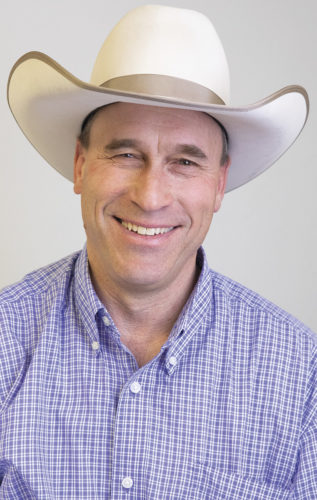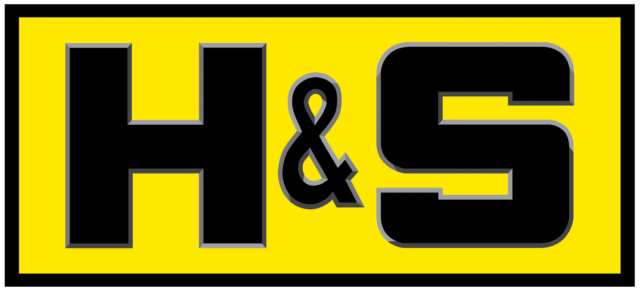It was getting on into late fall, and I was trying to figure out how and when to, among other things, get all the calves weaned. Besides the normal logistical nightmares of finishing any big project when there’s a dearth of time and help, there were added complications this year. We’d had an extremely wet summer and early fall, the likes of which I really couldn’t remember.
The results of the heaven-sent dew throughout the summer were mostly good, as most every farmer and cow puncher in south-central Idaho would readily attest, but there were a few less-than-ideal side effects. There may not have been one bale of hay in the region that was put up before it was rained on – a genuinely rare occurrence in the high desert country. Though some of my hay-peddling friends were a bit put out by the inconvenient timing of much of the rain, I wasn’t bothered by the resulting poorer-quality hay, since I wasn’t pushing it through milk cows, anyway. The rained-on stuff would be plenty good for my cows, and I certainly preferred paying $150 per ton to the $300 I had to pay for some feeder hay the year before.
Hay prices aside, I still had to deal with a few inconveniences brought on by the unusual weather circumstances. Most years, as the daylight hours shorten, my cows tend to hug the bottom fences of the foothills in the lower country, yearning for the greener pastures they assume await them in the welfare state that is the hayfields of the valley floor. With the peculiar warmer temperatures and summer and fall rains, however, the green feed in the higher country remained welcomingly abundant, offering the cows a pleasant extended stay in their summer mountain retreat.
As you might expect, all of this added up to a more complicated fall gather. Though the cows looked healthier, and the calves looked bigger and fatter as they came off the mountain than I could ever remember, I had to work a lot harder to get them home. I was still short a couple dozen cows, as far as I could tell, when one morning I got a call from Cordell from Almo on the other side of the mountain. Cordell was a good friend, and I tried to keep it that way since my cows, much more often than I would prefer, frequented the Almo side of the mountain range. Every year, I’d have to make one or two or several trips around the mountain with the trailer to pick up some wayward bovines that Cordell and the Almo buckaroos would gather and corral for me.
On this day, Cordell told me he had about a trailer load of critters from the west side in the pens by his house. Most of them appeared to be mine. I hooked onto the gooseneck and made the hourlong trip around the mountain and through the Silent City of Rocks, down into the ranch country of the Almo Valley. As I pulled up into the yard, I was met by Zack, Cordell’s son, who was unloading a load of rain-blackened hay. As I jumped out of the pickup, Zack warned me about the rank brockle-faced cow with the red tag. “She’ll for sure eat you,” he warned.
While I own more fence jumpers and snot blowers than I care to admit, this particular cow belonged to one of my neighbors on the west side, but since I had just enough room on the trailer, I figured I’d jump old Jezebel in with my cows and take her to my place, thus saving my neighbors a trip to Almo. I could see she had an attitude, but I got the cow loaded without much trouble.
The trouble started when I got home and had to sort the rank old she-devil out of my cows. She snorted and put me up on the fence a couple of times before I figured I’d play tough guy and call her bluff. As she lowered her head and came straight at me, I held my ground, sorting stick in hand, for a second longer than I had been doing. In reality, she called my bluff. I was able to avoid most of her wrath, but she kind of helped me over the fence. The blow from her head was glancing and did me no harm. The damage came from my landing on the other side, as my foot came down on an ill-placed rock and I twisted my ankle in a pretty bad way. I knew I probably hadn’t broken anything, but the resulting severe high ankle sprain would slow me down considerably in the weeks to come.
I lay there on the ground for a minute or two, cussing the day of that cow’s birth and anything else I could think of. With the searing pain and in the heat of the moment, I determined that it did me absolutely no good to do a kind deed. I swore I should have left that devil-spawned beast in Almo.
In the days and weeks since that encounter, as I’ve hobbled around on crutches and endured the misery of nightly ice baths for my crippled appendage, I’ve had opportunity to reflect on my original pain-induced oath to refrain from doing any unsolicited good deeds. Of course, I’ve softened my stance. And in my reflection, I’ve come to appreciate a much grander truth. Doing good or doing the right thing may seldom bring the rewards you’d think it may deserve. How can we help but consider that principle as we ponder the magnitude of the events that we honor in the Christmas season? The decision of a humble and destitute couple to selflessly bring the savior of all mankind into a bitter and uncaring world was met mostly with apathy and scorn. Yet they gladly did it, just as their precious baby would later bear the ultimate burden, as he suffered and died so each of us could live to make our own choices. May we all make the choice to always do good, even if it hurts.
—Merry Christmas












